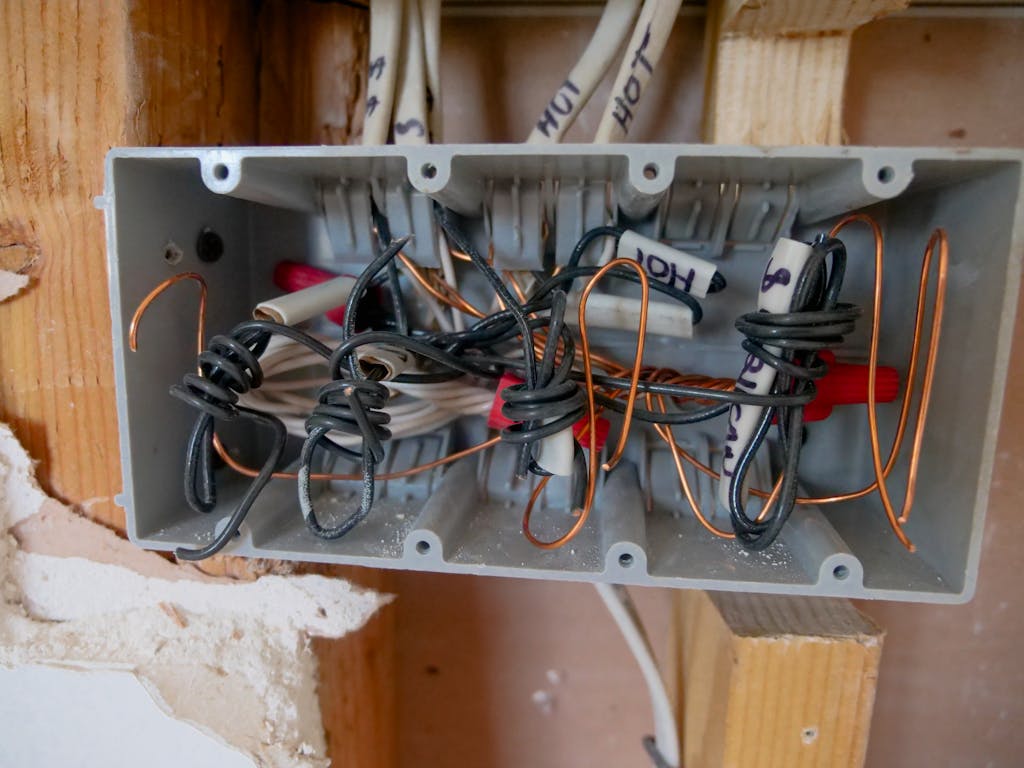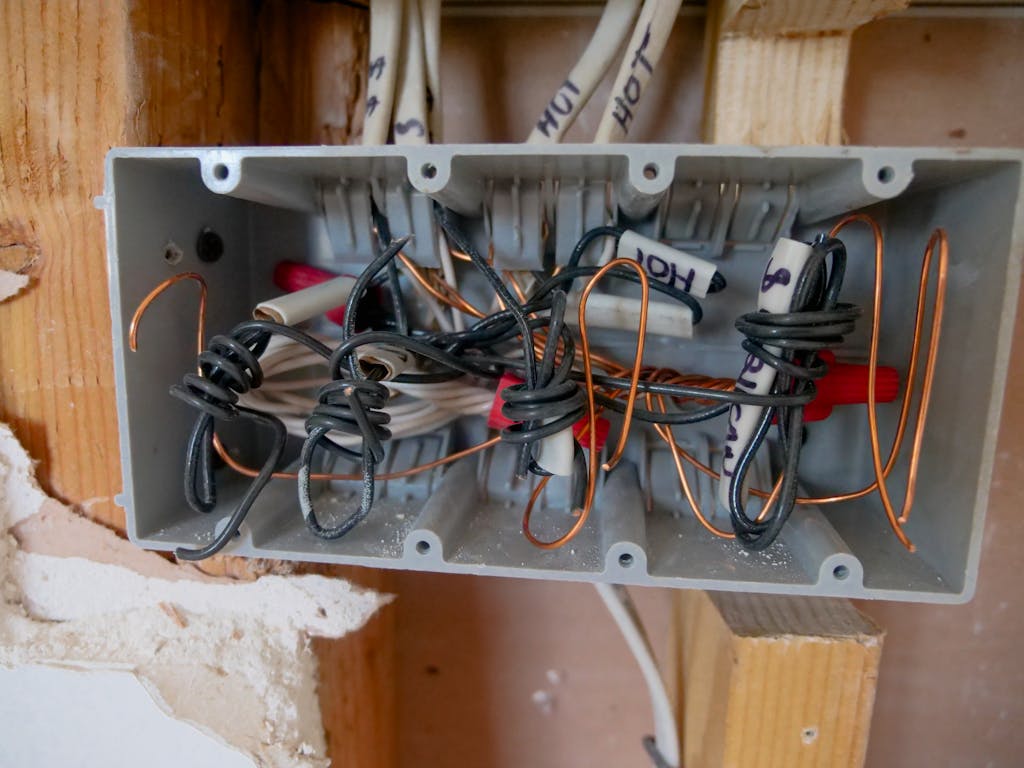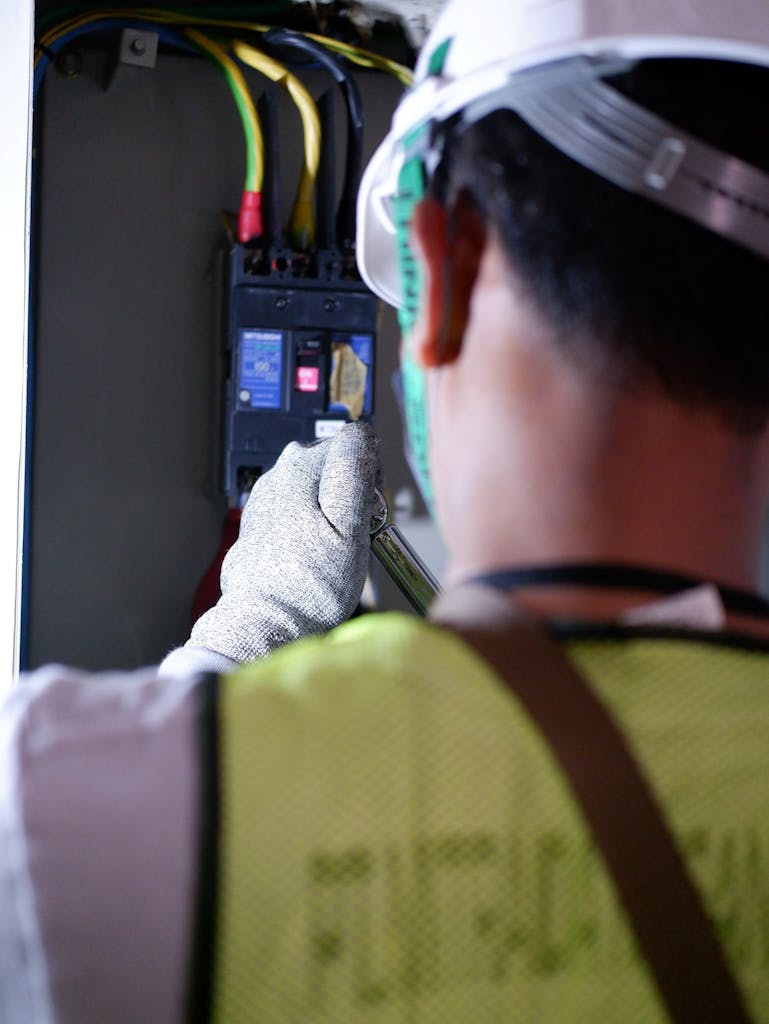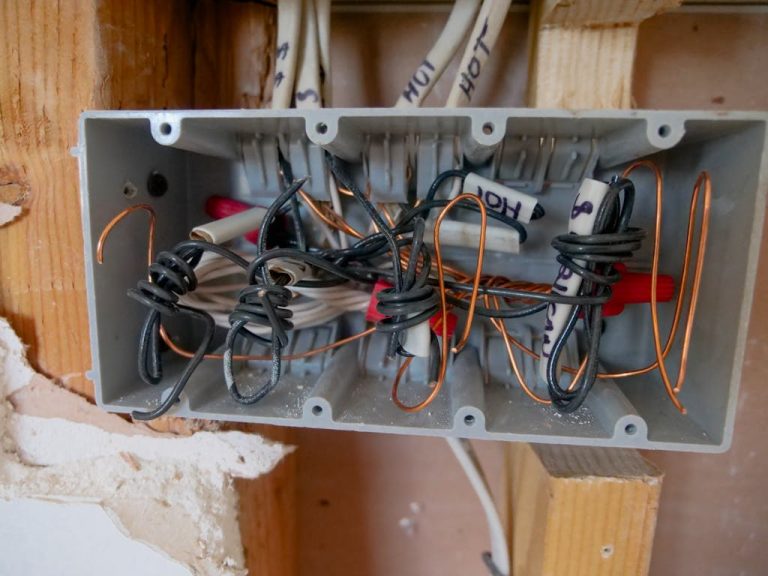Understanding the Real Cause Behind Electrical Faults
If your power keeps tripping or certain areas in your home or business lose electricity unexpectedly, it’s not just an inconvenience – it’s a warning sign. Frequent breaker trips, flickering lights, or burnt smells can all indicate underlying electrical faults that need immediate attention.
These issues are often caused by overloaded circuits, loose wiring, faulty appliances, or moisture ingress. But sometimes the problem runs deeper, and professional fault finding is the only way to pinpoint the exact cause safely.
In South Africa, electrical faults are one of the leading causes of domestic fires and equipment damage, according to Electrical Contractors Association of South Africa (ECA(SA)) and SANS 10142-1 Wiring Code. Ignoring these signs can risk not just your property but your family’s safety.

What Causes Your Circuit Breaker to Trip?
Your circuit breaker is designed to protect your wiring and appliances. When it detects an overload or short circuit, it “trips” – cutting off the electrical supply to prevent further damage or fire.
Common reasons include:
- Overloaded circuits – Too many appliances or high-draw devices like heaters and kettles on the same circuit.
- Short circuits – Caused by faulty wiring, damaged insulation, or metal contact.
- Earth leakage faults – When electricity escapes to ground, often due to moisture, corrosion, or damaged cables.
- Old or damaged breakers – Breakers themselves can degrade and fail to hold their rated capacity.
It’s tempting to just reset the switch and move on – but if it keeps tripping, the problem won’t go away. Every repeated trip weakens your system, increases the risk of arcing, and could eventually start a fire.
Signs You Need Electrical Fault Finding
If you notice any of the following, call an electrician immediately:
- Circuit breaker trips repeatedly or won’t reset
- Certain rooms lose power while others don’t
- A burning smell near plugs or the DB board
- Lights flicker or dim unexpectedly
- Shocks or tingling when touching metal appliances
- Buzzing sounds from sockets or light fittings
These are symptoms of a deeper problem. A qualified electrician will perform systematic fault finding using insulation resistance testing, thermal imaging, and continuity tests to locate the exact issue.
The Professional Fault Finding Process
At Ronald George Electrical, our certified electricians use a step-by-step diagnostic approach that complies with SANS 10142-1 and Department of Employment and Labour standards.
Here’s how we handle it:
- Interview & Visual Inspection – We first talk to you about the issue, check your main board, and look for visible signs of damage or overloading.
- Isolation Testing – We isolate circuits one by one to identify which line is causing the problem.
- Component Testing – Using multimeters, insulation testers, and thermal tools, we check wiring integrity, breakers, and connections.
- Appliance Testing – Sometimes the fault lies in an appliance, not the wiring. We verify each high-draw device.
- Report & Recommendations – Once the source is found, we provide a clear report and repair quote, ensuring your installation meets compliance standards for safety.
Fault Finding + Breaker Tripping = The Core of Preventative Maintenance
The best way to avoid expensive breakdowns is through preventative maintenance.
Just as vehicles need servicing, your electrical system should be tested and inspected regularly – especially if you run a business or have an older home.
Regular maintenance helps detect:
- Loose or corroded connections
- Underrated breakers
- Deteriorating insulation
- Overheating components
A proactive approach keeps your property safe and compliant – and saves you from costly rewiring later.
When Fault Finding Leads to Renovations or Rewiring
Sometimes, fault finding reveals a much bigger issue: outdated wiring or circuits not designed for modern energy demands.
If your building still has old aluminum or cloth-covered wiring, or your DB board is over 20 years old, it’s time to consider a rewire.
Rewiring not only prevents future trips but allows for safe upgrades like:
- New lighting installations
- Energy-efficient appliances
- Smart home integrations
- Surge protection
Your electrician should always test and issue a Certificate of Compliance (CoC) once work is complete – confirming your installation meets legal standards.
For details on CoC regulations, see:
Department of Employment and Labour – Electrical CoC requirements
Choosing the Right Electrician for Fault Finding
When choosing an electrician, always verify:
- ECA(SA) membership or DoL registration
- Valid Wireman’s License and CoC capability
- Experience in residential and commercial diagnostics
- Transparent quotes and guaranteed workmanship
These credentials ensure you’re dealing with a professional who won’t just mask the issue – they’ll solve it safely and permanently.
How Ronald George Electrical Can Help
Based in Cape Town, Ronald George Electrical has over 35 years of experience handling fault finding, breaker trips, and complex electrical repairs for homes and businesses.
We are BBBEE Level 1 certified and fully compliant with South African regulations. Whether it’s a minor trip or a complete DB board overhaul, we’ll ensure your power stays reliable, efficient, and safe.
Book a safety inspection or fault-finding visit today.
Call us at Ronald George Electrical – Your power, fixed right the first time.



